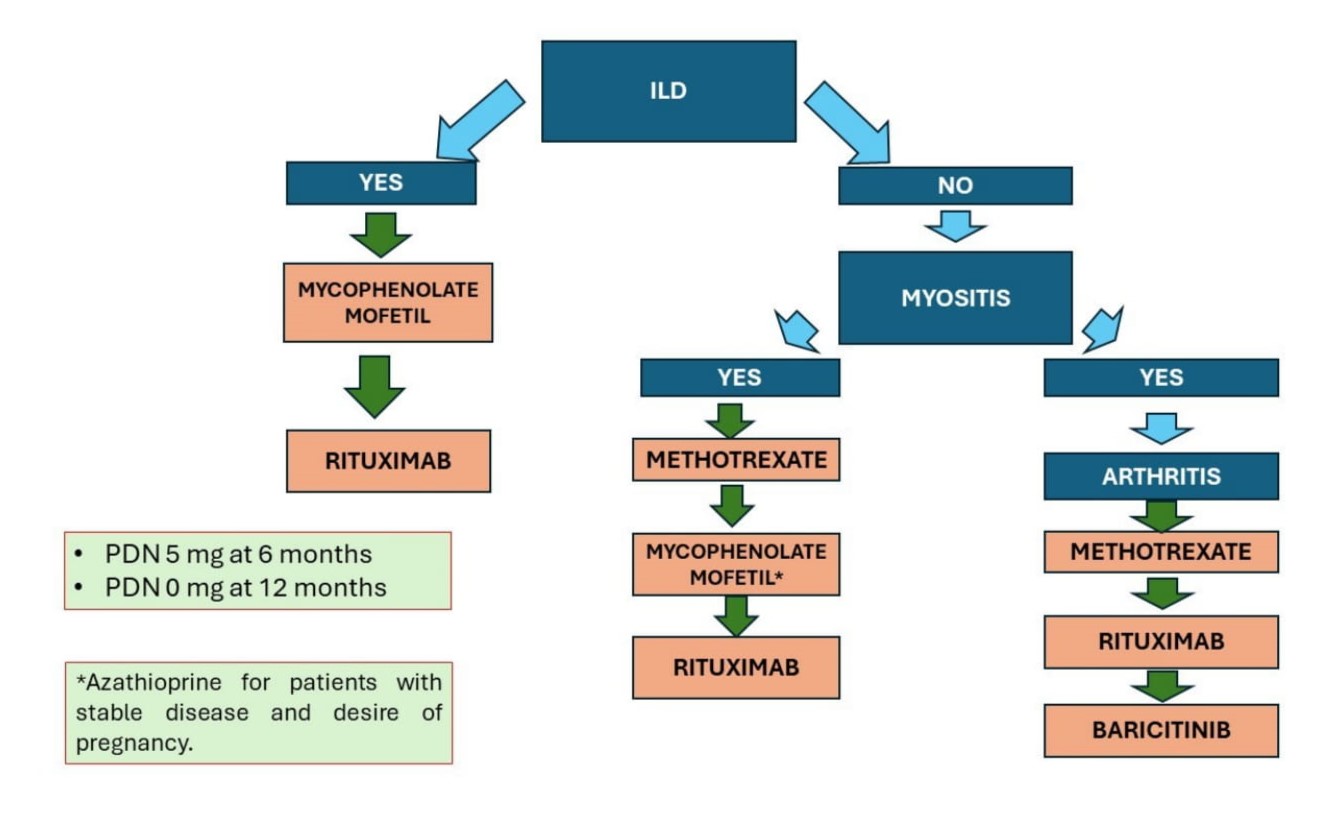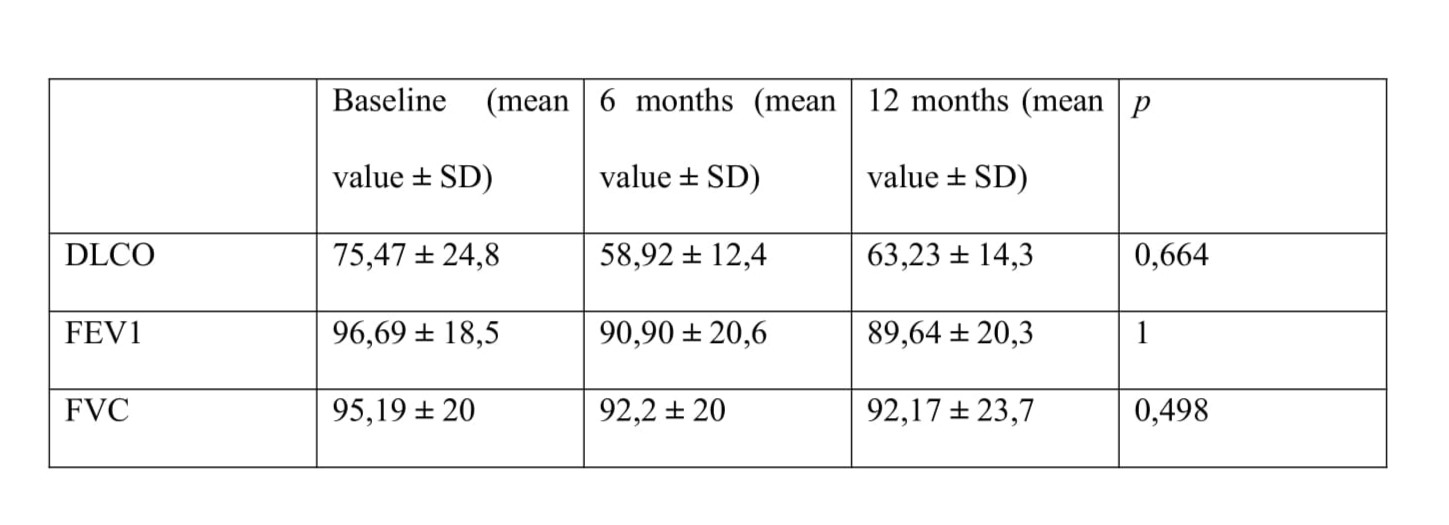Session Information
Date: Monday, November 18, 2024
Title: Muscle Biology, Myositis & Myopathies – Basic & Clinical Science Poster III
Session Type: Poster Session C
Session Time: 10:30AM-12:30PM
Background/Purpose: Anti-synthetase syndrome (ASS) is a rare autoimmune disease characterized by the presence of anti-aminoacyl-transfer-RNA synthetase antibodies (ARS) and the involvement of muscles, skin, joints, and lungs. Despite increasing interest and evidence, optimal clinical management remains unclear due to a lack of randomized control trials. This study aims to evaluate the efficacy and safety of a treatment regimen involving early co-administration of glucocorticoids and immunosuppressants, with rapid prednisone tapering.
Methods: We prospectively enrolled patients referred to our multidisciplinary “Myositis Clinic” with a diagnosis of ASS. Clinical, serological, instrumental and medications data were collected at baseline and at 6 and 12 months follow-up. According to treatment protocol, patients were treated with traditional synthetic immunosuppressants or rituximab (RTX) depending on clinical manifestations. Prednisone (PDN) was gradually tapered and eventually discontinued within 6 or 12 months.
Results: A total of twenty-seven subjects were enrolled: arthritis, myositis and ILD were assessed in 9, 16 and 18 patients, respectively, and all of them had an active disease. RTX was administered after methotrexate (MTX) in 4 cases of refractory joint involvement and co-administration of a second immunosuppressant was necessary in 2 patients. When muscle involvement was present, first-line therapy was MTX, followed by mycophenolate mofetil (MMF) or RTX, which allowed to achieve low disease activity or remission, respectively. Eight ILD-patients were treated with MMF and switched to RTX in 5 cases of inefficacy, but all patients were in clinical remission at the end of follow-up. At 12 months, 12 patients discontinued PDN.
Conclusion: This study is the first to prospectively report on the efficacy and safety of a stepwise, steroid-sparing treatment ASS encompassing various domains. MTX, as well as other synthetic immunosuppressants, showed limited efficacy in ASS-related arthritis, while RTX emerged as a promising option. This study recommends early RTX use in case of arthritis, suggesting it as a pivotal treatment for ILD too, and raises questions regarding maintenance therapy and treatment-free remission.
To cite this abstract in AMA style:
Conticini E, Cameli P, Grazzini S, d'Alessandro M, Bergantini L, Porcelli B, Mazzei M, Cantarini L, Bargagli E, Frediani B. Efficacy and Safety of a Step-down Regimen of Low Dosage of Glucocorticoids Combined with Early Administration of Synthetic or Biologic Immunosuppressants in Anti-synthetase Syndrome: A Pilot Study [abstract]. Arthritis Rheumatol. 2024; 76 (suppl 9). https://acrabstracts.org/abstract/efficacy-and-safety-of-a-step-down-regimen-of-low-dosage-of-glucocorticoids-combined-with-early-administration-of-synthetic-or-biologic-immunosuppressants-in-anti-synthetase-syndrome-a-pilot-study/. Accessed .« Back to ACR Convergence 2024
ACR Meeting Abstracts - https://acrabstracts.org/abstract/efficacy-and-safety-of-a-step-down-regimen-of-low-dosage-of-glucocorticoids-combined-with-early-administration-of-synthetic-or-biologic-immunosuppressants-in-anti-synthetase-syndrome-a-pilot-study/



